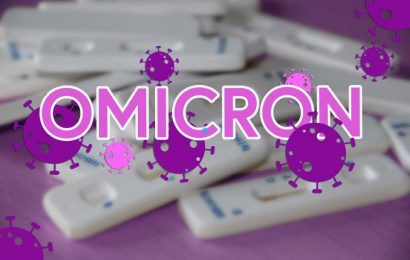Certain ultraprocessed foods — especially candy, prepackaged pastries, and frozen desserts — could be “gateway foods” for adolescents, leading them to increase their intake of other unhealthy foods, a new study suggests.
“For teens, gateway ultraprocessed foods (candy, store pastries, frozen desserts) should be prioritized for preventive dietary interventions as they increase intake across all other UPFs,” lead researcher Maria Balhara told theheart.org | Medscape Cardiology.
“The good news,” said Balhara, is that even small changes, such as reducing how often gateway foods are consumed, may reduce overall intake of unhealthy foods, and have a “big impact” on overall health.
Balhara has a unique perspective on adolescent eating habits: She’s 16 years old, from Florida, and conducted the study while dual-enrolled at Broward College and Cooper City High School.
Her study was released September 7 ahead of presentation at the American Heart Association (AHA) Hypertension Scientific Sessions 2022 in San Diego.
Blame the Pandemic?
Over the past 30 years, there’s been a steady increase in consumption of UPFs worldwide, coupled with mounting evidence that diets rich in UPFs raise the risk for several chronic diseases, including weight gain, hypertension, and increased risk for heart disease and premature death.
For her research, Balhara asked 315 teenagers (42% male) from 12 high schools in South Florida how often they consumed UPFs over two time periods — before COVID in 2019 and after COVID restrictions were eased in 2022 — using a survey that she developed called the Processed Intake Evaluation (PIE).
More than 2 in 5 teens (43%) increased their consumption of UPFs between 2019 and 2022.
During this time, increased consumption of frozen desserts was associated with an 11% increase in consumption of all other UPFs, whereas increased consumption of prepackaged pastries and candy was associated with a 12% and 31%, respectively, increase in consumption of all other UPFs, Balhara found.
Encouragingly, 57% of teens decreased their consumption of UPFs between 2019 and 2022.
During this time, decreased consumption of processed meats was associated with an 8% decrease in consumption of all other UPFs, whereas decreased consumption of white bread and biscuits was associated with a 9% and 10%, respectively, decrease in consumption of all other UPFs.
The results provide initial evidence for a new “gateway food model,” Balhara told theheart.org | Medscape Cardiology, in which certain UPFs, when increased, drive overall consumption of all UPFs among teens.
Limitations of the study include the self-reported dietary data and the fact that the PIE survey has not been validated.
Not All UPFs Are Bad
“I commend Ms. Balhara for her project, which highlights the importance of establishing good dietary patterns early in life,” Donna K. Arnett, PhD, past president of the AHA, said in a news release.
“The relationship between poor dietary quality and cardiovascular risk factors is well-established. While this is a small, preliminary study, it’s an important topic to continue to investigate and help us understand ways we can influence dietary behaviors to promote optimal cardiovascular health for all ages,” said Arnett, executive vice president for academic affairs and provost at the University of South Carolina in Columbia.
Offering perspective on the study, Taylor C. Wallace, PhD, with the Department of Nutrition and Food Studies, George Mason University, Fairfax, Virginia, made the point that “food processing and ultraprocessed foods aren’t the problem. The problem is the types of ultraprocessed foods on the market that people consume.
“Remember, non-fat, vitamin D fortified yogurt is also ‘ultra-processed’ and it’s very healthy,” he told theheart.org | Medscape Cardiology.
Wallace said that it’s no surprise that teens increased their intake of UPFs during the pandemic.
“Of course, people increased processed food intake during the pandemic. Processed foods are shelf stable at a time when grocery stores were running out of things and supply chains weren’t able to keep up. Also, many were depressed and use food to indulge,” he noted.
The study had no funding. Balhara has no relevant disclosures. Wallace is p rincipal and CEO of Think Healthy Group; c hief food and nutrition scientist with Produce for Better Health Foundation; e ditor, Journal of Dietary Supplements; d eputy e ditor, Journal of the American College of Nutrition; nutrition s ection e ditor, Annals of Medicine; and advisory b oard m ember with Forbes Health.
American Heart Association (AHA) Hypertension Scientific Sessions 2022. Abstract: 111. To be presented September 10, 2022.
For more news, follow Medscape on Facebook, Twitter, Instagram, and YouTube
Source: Read Full Article


